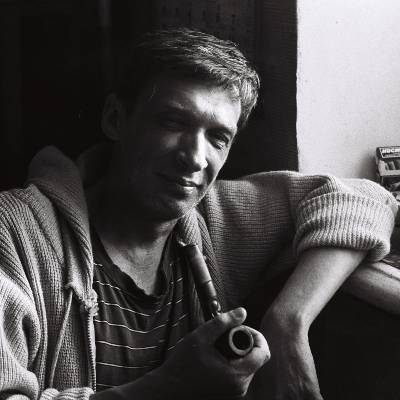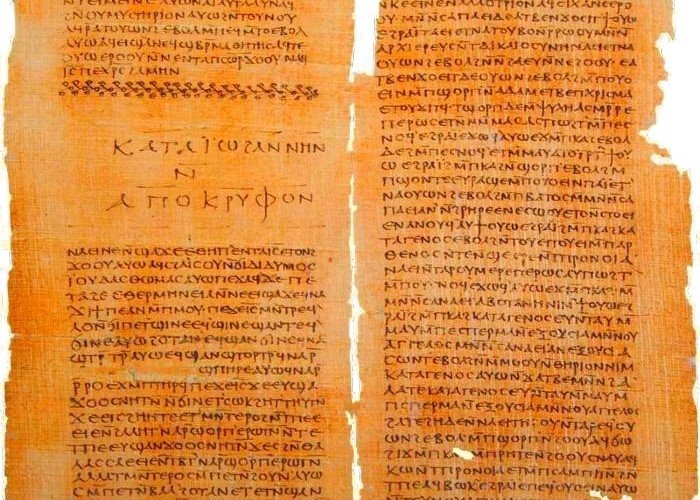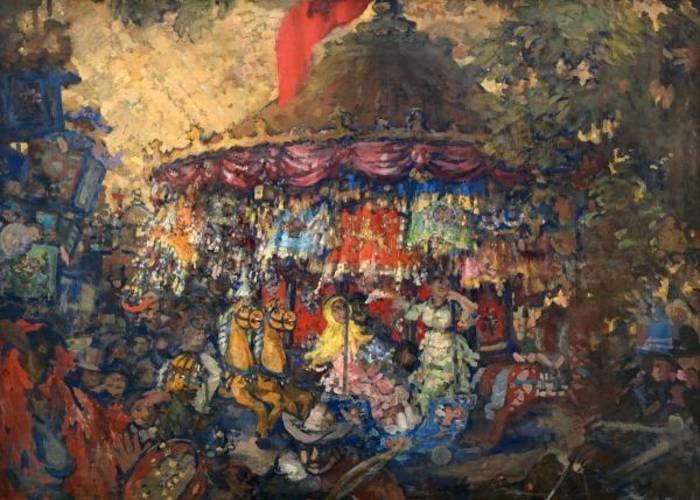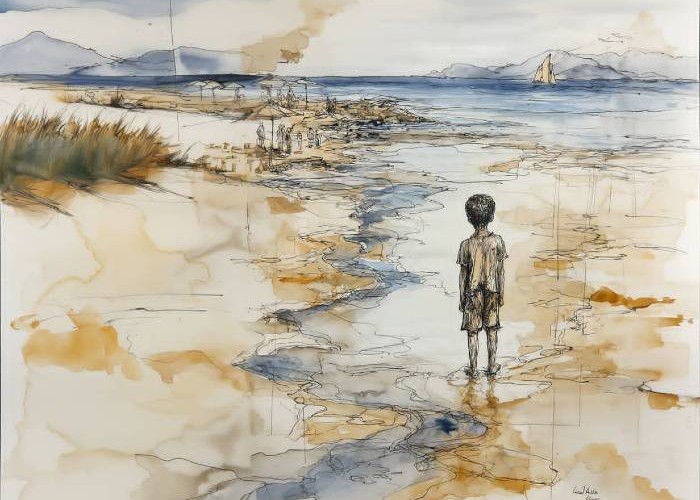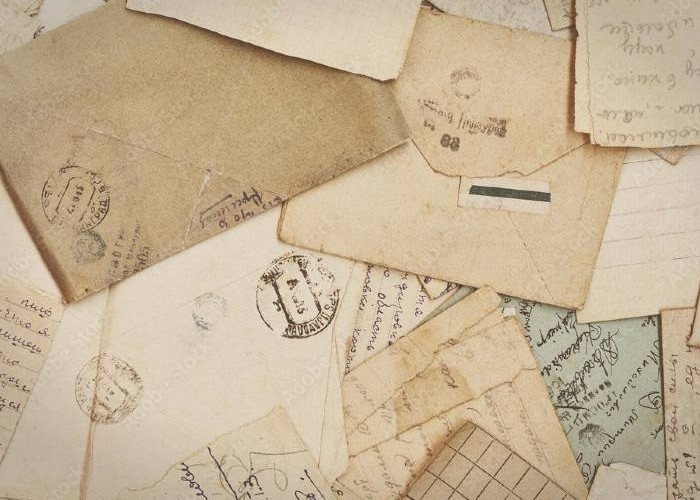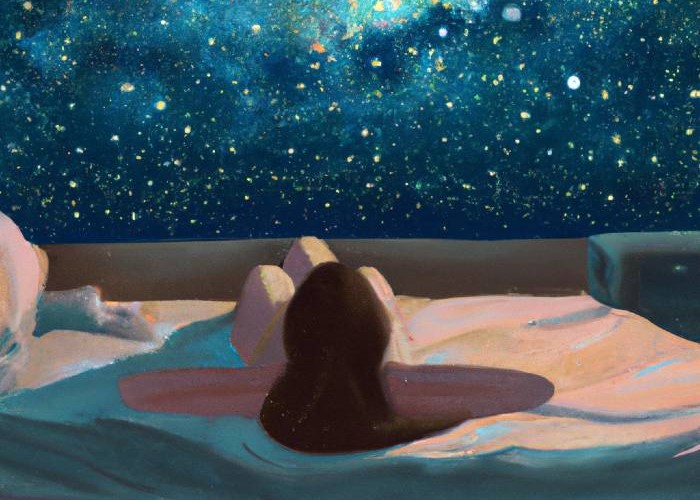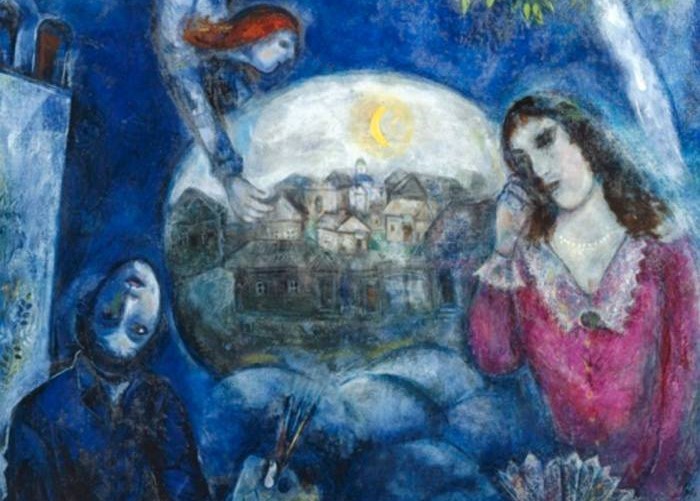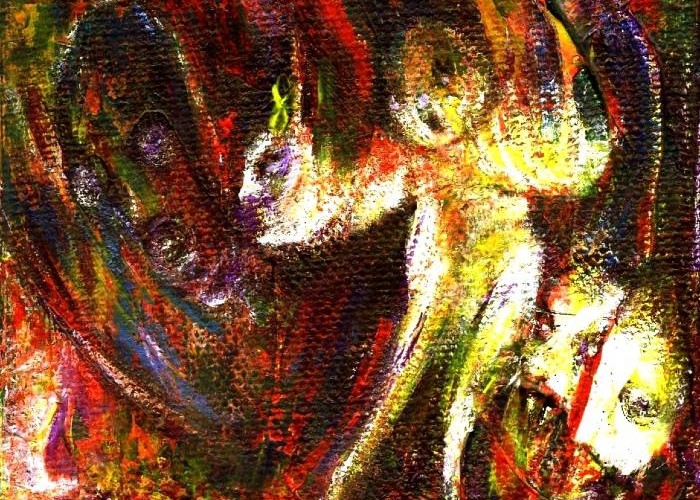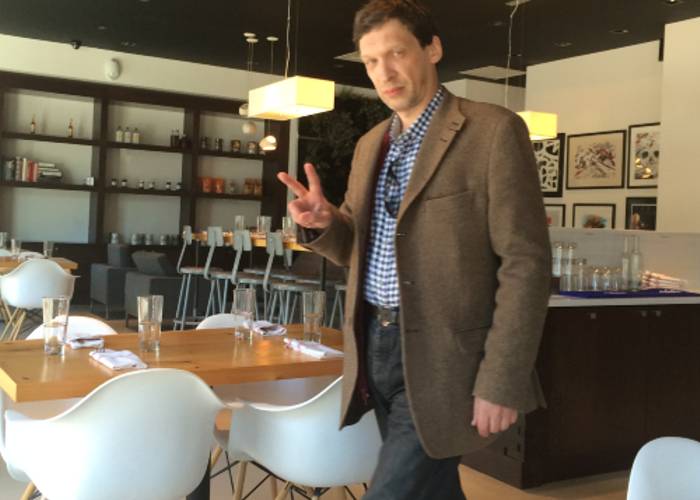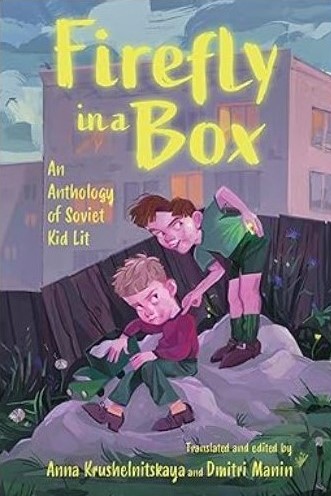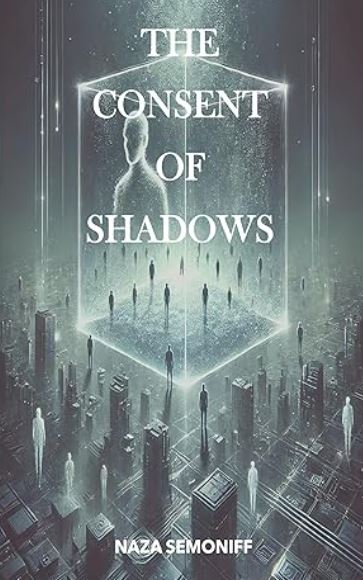Dima Andronov, having been kind enough to collect me from New York, was driving me down highway I-95 from the city of Washington where we’d been for a surprisingly informal visit. After seething, high-rise New York, the American capital seemed a deeply provincial town, in the same way, that Tambov might appear after a visit to Moscow. The city’s outskirts were a ghetto inhabited mainly by African Americans, and comprised neighborhoods of small, neat, two-story stone houses. Back home, these would be seen as upmarket suburban housing developments.
The center of the US capital was home to government buildings, museums and memorials. It was all rather like the Kremlin, albeit without the Kremlin’s surrounding walls but with that inherent American gigantism. The Lincoln Memorial consisted of a structure enclosed within two rows of Doric columns. Inside sat a giant, white marble statue of the president. It was reminiscent of the famous statue of Zeus at Olympia. The Senate Building, which also had white marble columns and a gigantic dome, looked suspiciously like an enlarged version of St. Peter’s Basilica. It was said the cafeteria here was well-known for its bean soup, although the writer Yuri Rytgheu hadn’t thought it was anything special. In contrast to all the gargantuan religious and architectural pluralism, the White House looked strangely modest and atheistic. Right there in front of the White House gates, overwhelmed by deep emotion, I presented Dima with a badge to commemorate the strengthening of Russian-US cultural relations. The badge resembled a small medal. It had ‘USSR Hockey Championship 1975-76’ written on it.
I liked the hotel where we were staying more than anything else I’d seen in Washington. The bronze taps on the washbasins, the wooden desks with their tapering legs, the windows which you opened by pulling the frame up, and the customary Bible on the bedside table. All in all, it looked just like a scene from a 1930s gangster movie. Leaving our things in the room, we headed off to a pharmacy to buy a toothbrush each and then to the ‘other’ pharmacy for some brandy. I’ve never been able to understand why Americans don’t take their toothbrushes with them in a special case rather than having to get one from the pharmacy every time they arrive somewhere new. As children, whenever we went to Pioneer camp, we’d take with us not only a toothbrush but soap and a soapbox.
Dima and the hotel staff told me three times, in both Russian and in what passes for English with the Americans, that smoking wasn’t allowed in the hotel bedrooms and that it was punishable with a substantial fine. And so it was that late that night, before heading to bed, I left my room, went down in the lift, and out onto the hotel steps to smoke my last cigarette of the day. My drags on the cigarette were accompanied by a large swig of brandy, after which I felt an irresistible urge for a wander around night-time Washington. Well, around the neighborhood at least. I turned one corner, then another, then I crossed over some street or other…one minute the indigo-white American moon shone in my face, the next on the back of my neck. All this time I saw not a single person. I lit up another last cigarette, took another swig from the bottle, and realized I was lost. If only Turetaev the communist, the political officer for the neighborhood where I’d served, could have seen me then, looking lost and wandering the moonlit streets of the capital of world imperialism, cigarette in one hand and bottle of brandy in the other! For a long time, I plodded alone along the unfamiliar streets. Only when I was down to my last swig of brandy did I find the hotel again. I polished off the brandy and smoked just one more last cigarette before I went into the lobby, turned smoothly from the entrance, gave the young Black woman on reception a beaming smile, got into the lift at the first attempt, and headed up to bed.
Anyway, we were driving down highway I-95 when it dawned on me that American highways were really pretty boring. The only places you could stop were the service stations located at 100–200-kilometer intervals. As for stopping by the woods at the side of the road to pick flowers or even have a picnic – well, you could forget it. In fact, the hard shoulder was replaced by a hefty barrier running along the highway edge.
Once we’d listened to Jim Morrison’s ‘Queen of the Highway’ many, many times, I began to imagine what third Zen patriarch Sosan’s ‘Verses on the Faith Mind’, would sound like if it was translated by a hippy. The first line, ‘The Great Way is not difficult,’ would be something like, ‘No heavy vibes on the great highway,’ and would be set to a bluesy melody. I ran out of steam after that. Luckily, Dima had turned off the highway towards the Atlantic beaches of Sandy Hook, where I could fulfill my dream: to swim in the Atlantic Ocean.
Once he’d parked the car, Dima explained that I mustn’t wear briefs to swim because this could be regarded as sexual harassment. From the trunk, he fished out a pair of brightly colored ragged shorts which came to below my knees. We had to get changed inside the car as, if anyone saw us, it could also be seen as harassment and according to US law harassment was a very serious matter. This was before the Harvey Weinstein affair, but nonetheless, there was in the air a distinct whiff of the impending sexual counterrevolution. We took turns to get changed on the back seat, took our towels, and set off along a long stony path towards the beach. The shorts I’d been given turned out to be several sizes too big, but I discovered that if I puffed out my stomach a bit, they’d stay up around my waist without my having to hold on to them. Perhaps I shouldn’t be sharing such risqué details, but as it turned out they were central to the story. I thought about how this situation would have played out in Ekaterinburg, my home city, on the shores of Lake Shartash say, where hundreds of the city’s residents swim in the summer. If you want to get changed there, all you need to do is pop behind the nearest bush or at worst wrap, a towel around you, take off your wet clothes and put your dry ones on. Of course, for women, it’s more complicated than that but they manage somehow. They seem to manage everything somehow…We walked past some changing cubicles, but we couldn’t use them as the swimming season was already officially over.
Separated from the rest of the shore by dense, prickly bushes, the beach was sand and, in places, shingle. Close to the place where we put our things lay a big, fat, rotting fish, as wide as it was long. The ocean was a dirty grey color. Further out to sea, almost at the horizon, a large, dirty-grey cargo boat was sailing towards New York. Some distance from where we were sitting there were a few sparse groups of swimmers. None of this looked anything like the advertising posters for the Atlantic, with their obligatory azure seas, palm trees, beautiful bikini-clad girls, and sailing boats. Instead, we had a grey tanker, a rotting fish, and guys in idiotic-looking shorts.
Nonetheless, if I was going to fulfill my dream I’d have to stick to the program. I puffed out my stomach and boldly entered the meter-high waves, which immediately carried me 20 meters or so from the shore. I struck out with my right hand and straight away realized that I’d have to breathe both in and out while swimming. However, every time I breathed out the surging water did its best to wash away the wretched shorts. I was forced to grab hold of them with both hands. It looked like I’d either be able to swim but risk losing the shorts, or hold on to the shorts and flounder about, glugging seawater twenty meters or so from the shore. It was a tough choice to make: either to drown in the dirty grey ocean waters of my dreams or emerge onto the shore naked; this would, no doubt, be an act of harassment that would result in my dispatch to the New Jersey State Penitentiary.
I don’t know how I made it back to the shore. All I remember is that I clutched the damned shorts around my waist with both hands. Not even a cotton quilt could have held as much water as those shorts.
A few days later I was somewhere or other on Fifth Avenue, right in the center of Manhattan, when a happy crowd some two hundred strong caught my eye. I pushed my way through to the rows nearest the front and saw a man, dressed in nothing more than a pair of swimming briefs and a bum bag of the type beloved by market traders and hawkers at the start of the ‘90s. A little way off stood a couple of policemen, laughing good-naturedly. I could not believe what I was seeing. Of course, I’d seen the girls on Times Square in their bright, shiny swimsuits, Mexican hats, and guitars but they were more like circus performers. This guy looked like a hippy who’d just got out of bed. He had a long beard and hair down to his shoulders and shouted over and over ‘Love! Love!’ and something else that might have been ‘God is love!’ As he did so, he went up to different people in the crowd and the crowd shrank back with a combination of fear and delight. Finally, some daredevil emerged from the crowd who didn’t shrink away but instead amiably raised his fist to head height. The dude with the beard cheerfully bumped the man’s fist with his own in a kind of ‘love and peace, man’ gesture, shouted ‘Love! Love!’ and erupted in ecstasy. The crowd broke into applause.
Twenty years or so ago I’d have found it funny to see someone parading along Fifth Avenue in no more than a pair of underpants, prompting cheerful shrieks from scandalized international tourists. But right away I was reminded of the anguish of my swim at Sandy Hook and the strict American legislation.
Even at the Metropolitan Opera, Dima had explained to me at length, a person who wants to get to their seat mustn’t walk along the row facing those already seated as any well-brought-up person from Ekaterinburg would do. Instead, you must walk with your back to them. To walk down the row facing those seated would be regarded as …… well, I’m sure you’ve already guessed. Incidentally, we’d gone to see ‘La Bohème’ and the production was on such a huge scale that in the Christmas scene in the second act a chorus of no less than a hundred people filed onto the stage. Given the size and lavish nature of the production, it even occurred to me that maybe Mimi wouldn’t die in the fourth act; perhaps, on the contrary, to everyone’s delight she would recover. Alas, that didn’t happen.
With all these thoughts in my mind, I slipped away from the crowd. I raised my fist, and the long-haired hippy cheerily ran up to me so he could perform his bizarre greeting. ‘Laav! Laav! Uraaah!’ I cried, and the daredevil guy also shouted ‘Love!’ lifting his hands to the sky. The crowd applauded.
That evening, I demanded that Dima explain what I’d seen. I was totally serious about it, as serious as a Komsomol secretary. Why was it that on the beach, where sheer logic indicates the minimum of clothing is required, you have to wear cumbersome shorts which might even lead to your death by drowning? While, at the very same time on a city centre street, where decency requires at the very least the wearing of shorts and a t-shirt, a person can go round in just a pair of underpants? And if the way to earn the right under US law to display yourself in swimming trunks to all and sundry was to shout ‘Ah, love, love,’ well, if I shouted the same words on the beach would I then be able to swim dressed in a manner more natural and reasonable for a human being? Dima, however, who would one day be a highly qualified lawyer, explained that under US law the hippy I’d seen on Fifth Avenue wasn’t subject to the laws of beach attire; on the contrary, he was subject to the laws of freedom of speech: his loud declarations were an expression of his civic engagement. While it was absolutely appropriate to exercise freedom of speech in the center of New York, it was quite inappropriate on the beach. If while on the beach I’d run up to people shouting ‘Love, love!’ it would definitely have been regarded as…well, I’m sure you can guess.
Once back in Ekaterinburg, I headed to the shore of Lake Shartash to check out the freedom of speech situation on a local beach. There was nobody there. The summer season had long since come to an end. On the opposite shore of the lake, against a vast background of green pine trees, leaves were falling from the trembling, yellow birches. A burst of chilly wind raised ripples on the grey-green surface of the water in which the ragged, white clouds were reflected. The beach wasn’t a beach as such, but just a few grassy clearings which in places sloped right down to the water’s edge. I wandered the path beside the shore for quite some time; sometimes it led deep into the bushes, before once again emerging by the lake. Finally, I spotted two guys sitting on a log drinking vodka. On the grass, asleep, lay a middle-aged woman in a cobalt-blue crocheted jersey. One of the men gave me a hostile look and asked:
‘You got a ciggy?’
‘Help yourself,’ I replied, fishing a packet out of my pocket.
He poured something into a plastic cup, which they’d evidently found by the lake, and gave it to me. I raised the cup, glanced at the sullen-looking men and the sleeping woman, at the white clouds reflected in the glistening water, and said,
‘Love! Lyubov’!’
…and I downed my drink in one.
Translated from Russian by Louisa King
